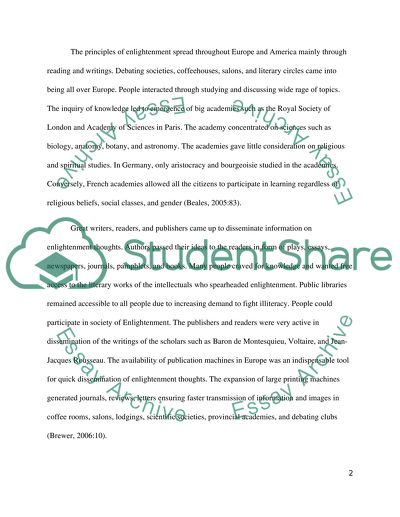Cite this document
(“Enlightenment and Modernity Essay Example | Topics and Well Written Essays - 2000 words”, n.d.)
Retrieved from https://studentshare.org/history/1448927-enlightenment-and-modernity
Retrieved from https://studentshare.org/history/1448927-enlightenment-and-modernity
(Enlightenment and Modernity Essay Example | Topics and Well Written Essays - 2000 Words)
https://studentshare.org/history/1448927-enlightenment-and-modernity.
https://studentshare.org/history/1448927-enlightenment-and-modernity.
“Enlightenment and Modernity Essay Example | Topics and Well Written Essays - 2000 Words”, n.d. https://studentshare.org/history/1448927-enlightenment-and-modernity.


